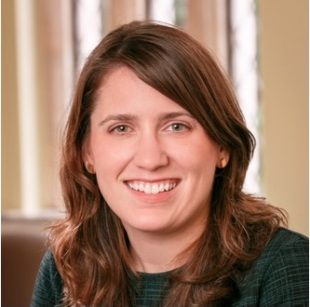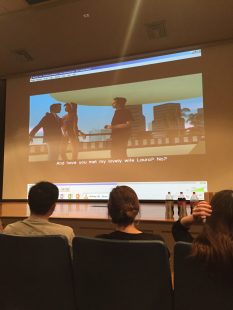Join us for a talk by Alex Gil, the Digital Scholarship Coordinator of the Humanities and History Division at Columbia University Libraries.
Monday March 13, 2017
12:15-1:15pm
Hillel 101
Lunch provided, please register
The Globe is Not a Circle: The New Life of Words and the Broken Scholarly Record
In this talk, Alex Gil follows the present and possible future of our scholarly production and its uneven flows around the world.Although “the scholarly record” as a concept does not translate well into other languages, and its outlines are difficult to define, its existence is not in question. At a time when our archives and libraries are in a period of transition to hybrid registers—both analog and digital—we see a shift in the divisions of labor and interpretive frameworks resulting from these changes in the production of this record. An opening for understanding these developments and design sensible practices can be found in the idea of an *infrastructural critique* advanced by Liu, Verhoebenand as a recasting of digital humanities as a hermeneutic praxis with material consequences. In particular, Gil will argue for a form of this infrastructural critique which he and others call minimal computing.
 Alex Gil specializes in twentieth-century Caribbean literature and Digital Humanities, with an emphasis on textual studies. His recent research in Caribbean literature focuses on the works and legacy of Aimé Césaire, including work in Aimé Césaire: Poésie, théâtre, essais et discours published by Planète Libre in 2013. He has published in journals and collections of essays in Canada, France and the United States, while sustaining an open-access and robust online research presence. In 2010-2012 he was a fellow at the Scholars’ Lab and NINES at the University of Virginia. He is founder and vice chair of the Global Outlook::Digital Humanities initiative and the co-founder and co-director of the Group for Experimental Methods in the Humanities and the Studio@Butler at Columbia University. He serves as Co-editor for Small Axe: Archipelagos and Multilingual Editor for Digital Humanities Quarterly. Alex Gil is actively engaged in several digital humanities projects at Columbia and around the world, including Ed, a digital platform for minimal editions of literary texts; the Open Syllabus Project; the Translation Toolkit; and, In The Same Boats, a visualization of trans-atlantic intersections of black intellectuals in the 20th century.
Alex Gil specializes in twentieth-century Caribbean literature and Digital Humanities, with an emphasis on textual studies. His recent research in Caribbean literature focuses on the works and legacy of Aimé Césaire, including work in Aimé Césaire: Poésie, théâtre, essais et discours published by Planète Libre in 2013. He has published in journals and collections of essays in Canada, France and the United States, while sustaining an open-access and robust online research presence. In 2010-2012 he was a fellow at the Scholars’ Lab and NINES at the University of Virginia. He is founder and vice chair of the Global Outlook::Digital Humanities initiative and the co-founder and co-director of the Group for Experimental Methods in the Humanities and the Studio@Butler at Columbia University. He serves as Co-editor for Small Axe: Archipelagos and Multilingual Editor for Digital Humanities Quarterly. Alex Gil is actively engaged in several digital humanities projects at Columbia and around the world, including Ed, a digital platform for minimal editions of literary texts; the Open Syllabus Project; the Translation Toolkit; and, In The Same Boats, a visualization of trans-atlantic intersections of black intellectuals in the 20th century.


 This semester, Sascha Goluboff, Professor of Cultural Anthropology, was awarded a DH initiative grant for her course titled “Writing Seminar for First Years: Terror and Violence.” I was invited by Professor Goluboff to view her students’ final DH projects in Stackhouse Theatre. The class was tasked with analyzing the popular video game “Grand Theft Auto” in terms of the racism and violence portrayed. Professor Goluboff asked students to pair up to create an iMovie that would analyze the depiction and their reactions to the violence in the game.
This semester, Sascha Goluboff, Professor of Cultural Anthropology, was awarded a DH initiative grant for her course titled “Writing Seminar for First Years: Terror and Violence.” I was invited by Professor Goluboff to view her students’ final DH projects in Stackhouse Theatre. The class was tasked with analyzing the popular video game “Grand Theft Auto” in terms of the racism and violence portrayed. Professor Goluboff asked students to pair up to create an iMovie that would analyze the depiction and their reactions to the violence in the game.